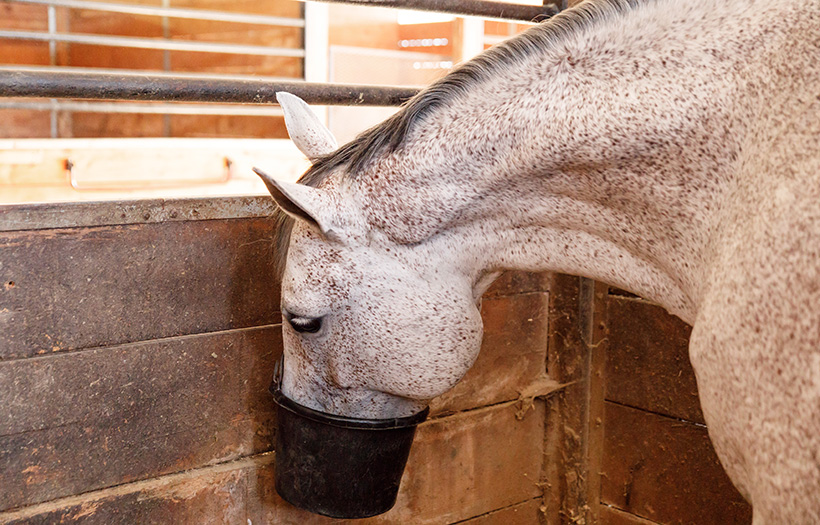Feeding Bran Mashes to Horses

Feeding bran mashes to horses has been a longstanding tradition, often believed to have a laxative effect and prevent colic. However, there are important considerations and potential risks associated with this practice. This article aims to provide insights into the effects of bran on horses and highlight the importance of maintaining a balanced diet.
Laxative Effect and Irritation
Limited Laxative Effect
While bran is known to have a laxative effect in humans, horses would need to consume large quantities of bran to experience a similar effect. Feeding bran in amounts greater than a horse can consume is not practical. Some horses may produce softer stools after consuming bran, but this is likely due to bran’s tendency to irritate the lining of equine intestines rather than its laxative properties.
Potential for Irritation and Enterolith Formation
Consistently feeding bran over a long period of time can potentially contribute to the formation of enteroliths. Enteroliths are mineralized masses that can develop in a horse’s gastrointestinal tract. Bran’s tendency to irritate the intestinal lining may play a role in this process. Therefore, caution should be exercised when considering daily bran regimens.
Calcium-Phosphorus Ratio
Importance of Proper Ratio
The calcium-phosphorus ratio is crucial for building sound bones and supporting muscle function in horses. Both minerals need to be absorbed in appropriate proportions, preferably with a ratio of 1.2 or more parts calcium to 1 part phosphorus. Imbalances in this ratio can lead to issues with skeletal strength and overall health.
Bran’s Calcium-Phosphorus Imbalance
Wheat bran and rice bran, commonly used in bran mashes, contain approximately 10 times more phosphorus than calcium. Regularly feeding bran in large quantities can disrupt the calcium-phosphorus balance in a horse’s diet. When phosphorus exceeds calcium over an extended period, the horse’s body may draw additional calcium from its bones, potentially weakening the skeletal structure.
Moderation and Balanced Diet
Occasional Treats
Feeding an occasional bran mash as a treat is generally safe and can be enjoyed by horses. However, it is essential to monitor the frequency and quantity of bran feedings to prevent long-term imbalances.
Caution and Calcium Supplementation
Daily bran regimens in significant quantities should be avoided unless calcium is supplemented elsewhere in the horse’s diet to maintain a proper calcium-phosphorus ratio. Ensuring that the overall diet provides sufficient calcium is vital for supporting the horse’s skeletal and muscular health.
Balancing Tradition and Nutritional Considerations
While feeding bran mashes to horses is a traditional practice, it is crucial to consider the potential risks and nutritional implications. Regular and excessive feeding of bran without proper calcium supplementation can lead to imbalances and weaken the horse’s skeletal structure. By exercising moderation and ensuring a balanced diet, horse owners can safely incorporate occasional bran treats while prioritizing the horse’s long-term health and well-being.
Ready to ensure your horse is getting the optimum nutrition at feeding time, every time? Find the perfect feed formulated specifically for horse’s needs with our Feed Selector Tool.
